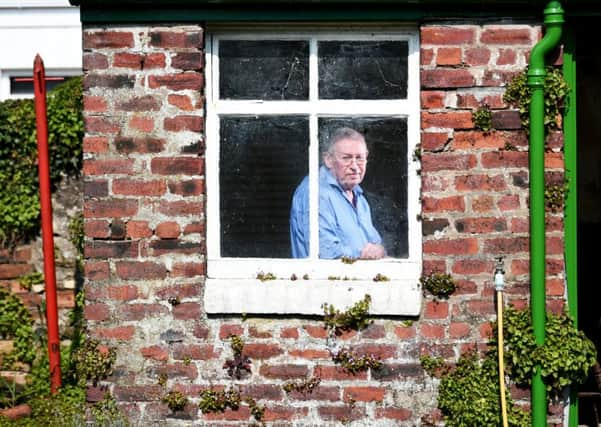Baby boomers ‘de-gay’ to survive life in Scottish care homes


Glenda Rome’s film, Return To The Closet?, featuring Scots who lived in some of the toughest times to be gay, will be premiered at the CCA in Glasgow on 1 May, 2019, at the launch of the month-long 2019 Luminate festival for older citizens.
The documentary is released in the same year as the 50th anniversary of the Stonewall riots in Greenwich Village in New York, which saw a week of rioting breaking out after police raided the Stonewall Inn gay club in the early hours of 28 June, 1969.
Advertisement
Hide AdAdvertisement
Hide AdThe event was hailed as being a catalyst for the modern fight for the gay rights movement in the US and around the world.
Older LGBT people in care or who have carers visiting their homes have spoken of “de-gaying” their living space by removing photographs of themselves with a same-sex partner and mementoes of their past.
Others say they are afraid of how other residents will treat them if they reveal their sexuality.
However, Rome, commissioned by Luminate and LGBT Age, to make the film, said one of the most shocking things uncovered during research and extensive interviews was that many care homes report they have no LGBTQI residents.
“The idea of older people feeling they have to ‘go back into the closet’ is terrible. It’s something people are just starting to think about now and the last thing we need is for the progress that has been made, which was hard-won for a generation who lived through the criminalisation of their sexuality, to be undermined.
“The real value of this film is not about creating answers but about inspiring an important conversation.”
Homosexuality among men was illegal in Scotland until 1980 – lagging 13 years behind the law in England and Wales.
This was a factor behind former lecturer Alan Johnson, 77 – who lives in Largs, and appears in the documentary – leaving Scotland in the mid-60s, after graduating from the University of St Andrews to move to London.
Advertisement
Hide AdAdvertisement
Hide Ad“My decision to move to London was in large measure related to escaping from then Presbyterian, and distinctly homophobic, Scotland to a more liberal and welcoming environment where gay venues (bars, clubs and other meeting places) were already more established and accepted.
“Many of my friends did likewise around the same time, and for the same reasons.
“When I was a teenager in Scotland in the mid-1950s same-sex relationships were illegal, criminalised, condemned and pathologised; the word ‘gay’ was not in use; religious intolerance was widespread; and ‘coming out’ (least of all to my churchgoing parents) was quite impossible.
“Fortunately, so much has changed for the better in recent years – but this repression has left a near indelible mark on many older LGBT people, particularly so in Scotland. Many of us speak about this in the film.”
Johnson added: “The whole point in making this film was to influence carers, particularly in care homes.
“There are people who have had all sorts of bad experiences in care homes or when receiving care at home because of their sexuality.
“In general, before you need help, it can be quite common to be ‘out’ to some people but not all. But once you are in residential care that living space becomes your home and you should feel safe and have freedom to be honest about how you live your life.”
Liz Haggart, in her late-60s, from Edinburgh, who also appears in the documentary, said she and her LGBT friends had been speaking about their fears if they need care in the future.
Advertisement
Hide AdAdvertisement
Hide Ad“We’ve spoken about this a few times. We’re really worried about it.
“But the thing is, there’s probably a lots of gay people in the care sector, scared to come out, wondering how the rest of the staff would treat it.”
Donald Macaskill, chief executive of Scottish Care, who will take part in a Q and A session following the screening, said: “In order to become a carer staff must have a qualification, usually a SVQ3 covering equality and diversity. So in terms of the workforce I’m sure there will only be a tiny minority who may not choose to address the issue sensitively.
“Another factor to bear in mind is that any residents in a care home living with dementia may be less inhibited about expressing opinions which they held years ago, sometimes giving offence to others.”
Return To The Closet? CCA, Sauchiehall Street, Glasgow, 1 May 2019, entrance £4